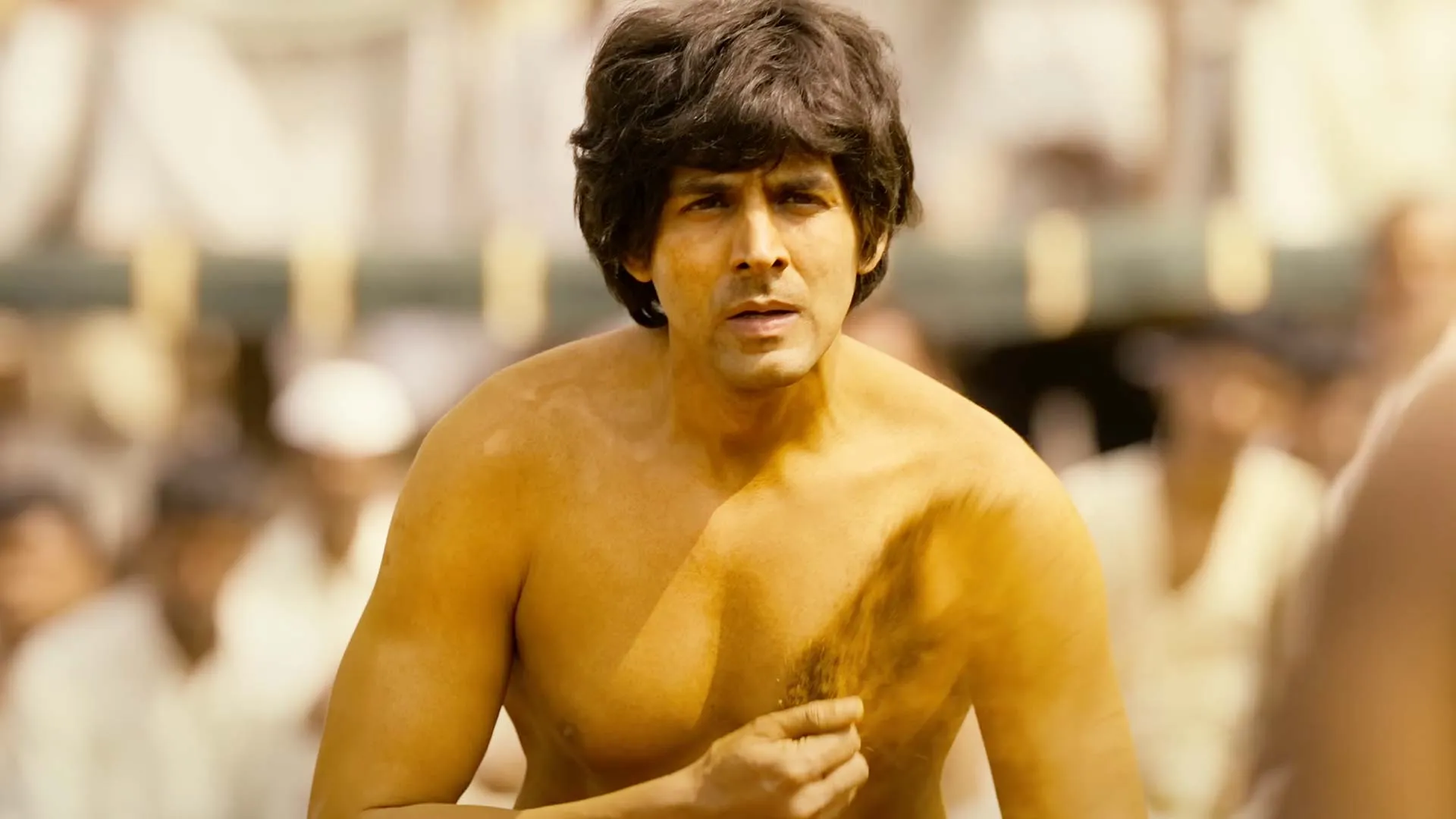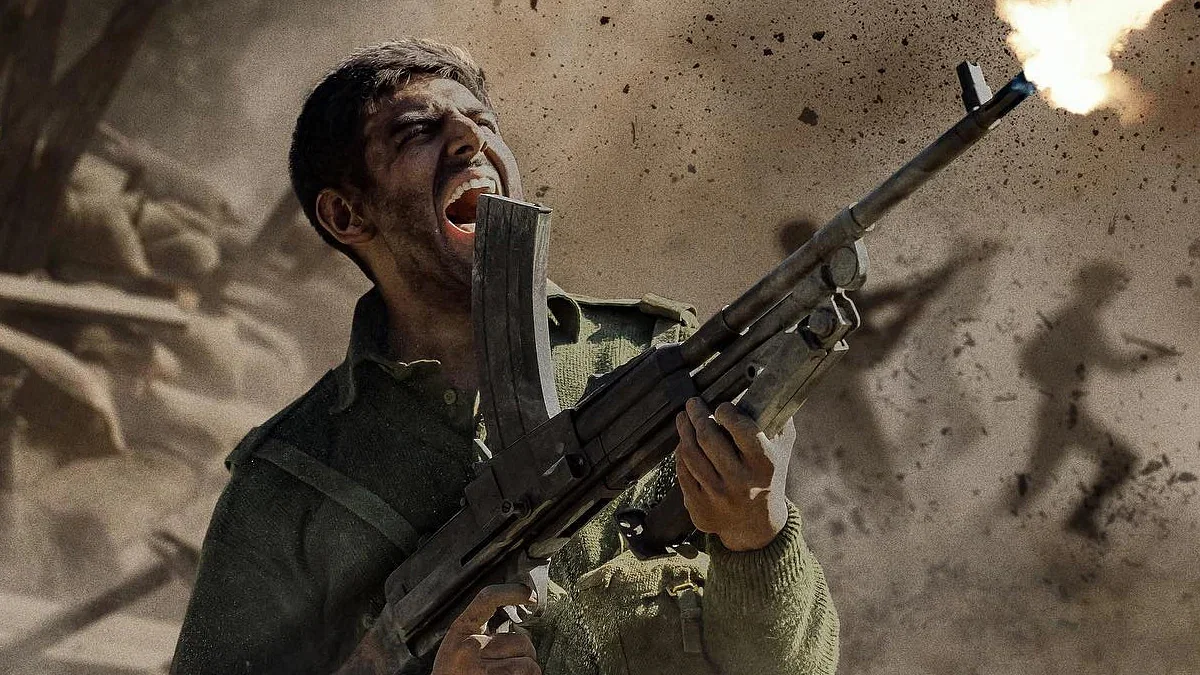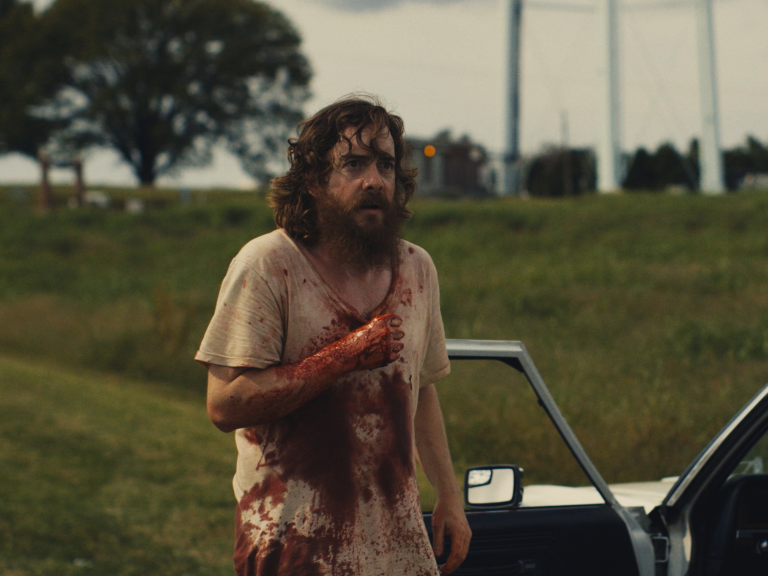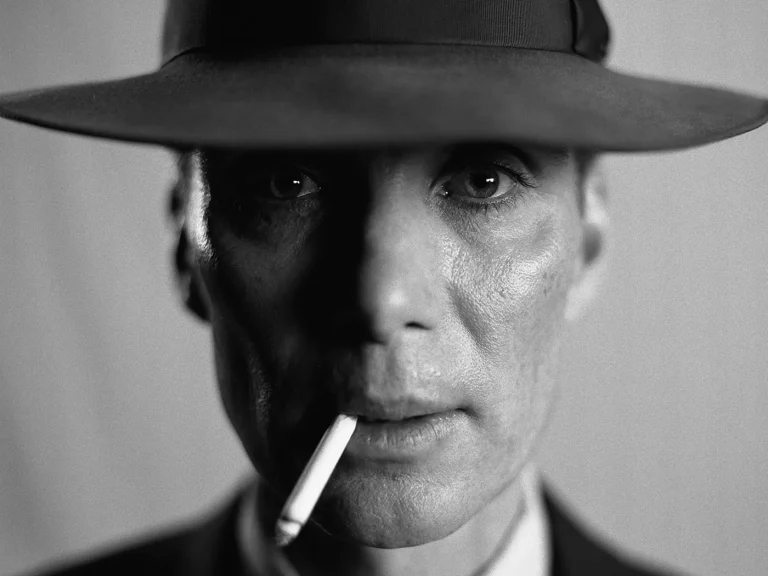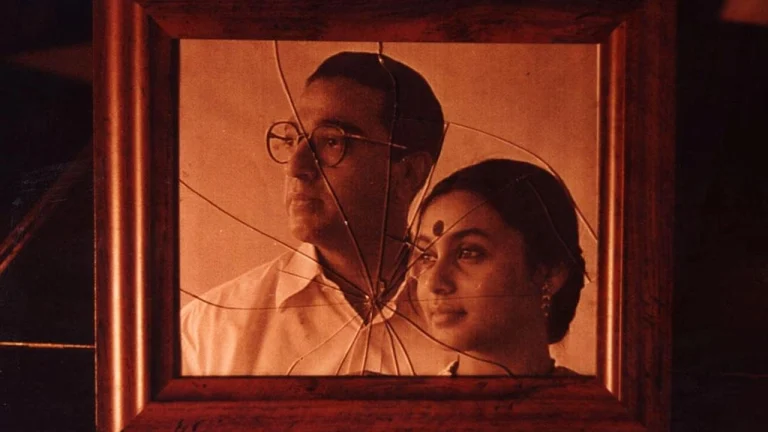You either die a hero or live long enough to become the person recommending a Kartik Aaryan movie to everyone. I was returning home from the most soul-filling dinner when my brother texted to ask if I wanted to watch “Chandu Champion.” I ignored his message. Why would I pay to watch a Kartik Aaryan film? Although I wasn’t paying (what else is the point of having a sibling?), you get the point. He called me then, repeating the question. I still didn’t want to watch it, but I asked for a minute to make my decision. I was torn up.
You must be thinking: It’s just a movie, what’s the big deal? But no movie is ever just a movie (this one wasn’t either). So, I agreed to go purely out of fear of missing out. What else was I to do? Stay up late while my family watches a Kartik Aaryan film and wait for them to come home? Of course not. I hadn’t seen the trailer or the poster, was blissfully unaware of any marketing, and knew nothing about the film except that it was some sort of biopic, Kabir Khan directed it, and, of course, that Kartik Aaryan was in it.
The film opens with a prosthetically older Kartik arriving at a police station on a bus. A constable runs to inform the Inspector (played by Shreyas Talpade) that a man wants to file a case against the President of India. Like Shreyas Talpade, I also thought, “What a joke! I was right; I shouldn’t have come.” Placing numerous medals on the desk, the old man is Murlikant Petkar, an ex-athlete who wants to sue the President of India for not awarding him the Arjuna Award. No, it’s not a greedy gripe of old-age recognition. Murlikant believes this will draw attention to his village, so it is finally on the receiving end of development, including roads, electricity, sanitation, and such.
But nobody knows who this old man is. Who is Murlikant Petkar? Great question because, like everyone at the police station, the audience doesn’t know who Murlikant is either. In many ways, that is the point of a biopic. To deep-dive into the life of someone we’re familiar with, someone whom we’ve heard of but don’t know about. However, the bigger challenge for Kabir Khan here was to introduce this unknown man to us and solidify his identity while ensuring that the absurd happenings of his real life don’t get lost as fictional creative freedoms for dramatic purposes.
And he does an efficient job of it. Murlikant Petkar becomes the narrator of his story. Khan has turned protagonists into narrators before – a reluctant one in “New York” and an eager one in “Bajrangi Bhaijaan.” However, here, the narrator is neither reluctant nor naive but rather resigned. Someone who must prove that his demand is not untoward, someone who finally has a stage to tell the story of his life.
Watching an Olympian return to his village with a bronze medal solidifies one dream in young Murli (played by Ayan Khan). He wants to win the first Olympic Gold Medal for India. This is the one goal of his life. But there are other things he would like: not to be laughed at, not to be called ‘Chandu’ (loser), and not to be ridiculed for his ridiculous dream. His elder brother, Jagannath Petkar, supports his absurd dream. Teenage Murli is a pehelwaan’s apprentice and, despite his father’s disapproval, participates in a local, friendly wrestling match in which he defeats an influential man’s son. This win quickly infuriates the villagers, and Murli has to run, jump, and swim away from his village, away from his home, and onto the first passing train to escape the wrath of the mob, ready to kill him.
On the train, he meets Garnail Singh (Bhuvan Arora), who nudges Murli to join him in the army if he wants to play sports for India. The first act, for me, ends with the song ‘Satyanaas’. On their way to joining the army corps, this song marks the end of these boys’ adolescence and innocence. Kabir Khan has mentioned that it was his boyish smile that first drew him to casting Kartik. He’s not wrong. Kartik’s innocence here leaps and latches onto you – his charm is unflinching.
Despite music being the film’s weakest link, ‘Satyanaas’ is shot brilliantly, with yellow hues filtering into the train and signaling the start of a new dawn, a new hope, and a new world. The light wraps itself around Murli, also giving us one of my favorite frames from the film: the boys silhouetted atop the train like a Warli painting. Cinematographer Sudeep Chatterjee has captured Kartik Aaryan in a light unlike ever before. As Murli transitions from wrestling to boxing and the games proceed, the camera is decidedly infatuated with him.
Here, we meet Coach Tiger (Vijay Raaz), Murlikant’s mentor and longest companion. Only a few pull off humor with a permanently annoyed face like Vijay Raaz. Under his watchful eyes, Murli transitions from being a boy to a man, from merely harboring dreams to actionably fulfilling them. He is set to compete at the upcoming Asian Games but never gets to go for the 1965 India-Pakistan War onsets in Kashmir, where Petkar is stationed. Kartik is known for his monologues, but Kabir Khan trades that for an 8-minute uncut war sequence here, which I was so mesmerized by I didn’t even notice it was eight minutes long.
I was so mesmerized that I never anticipated that the male lead of a mainstream Hindi film would get shot nine times and, more importantly, return physically disabled. The truth is that a Bollywood (or Tollywood) hero would recover unscathed from such a grave injury, but Murlikant Petkar is not a Bollywood hero. He is a real person. A soldier-cum-athelete who loses all function of his limbs because of a bullet lodged in his spine, where it remains to date. Murlikant Petkar is disabled by the age of 21 and remains so for the rest of his life.
When Murli is moved to the army hospital for better care, his long-lost family finally learns of his whereabouts. Knowing that her paraplegic son might never walk ever again, his mother promises to nurse Murli to take care of him, and he agrees to finally return home despite his incomplete dream. Murli lets go of all resolve and breaks down, and while enduring this phase of pain, Kartik’s performance truly shines. This tearful reunion is followed by, in my opinion, the most brutal scene between Murli and his brother Jagannath (Aniruddh Dave). As the two look out into the sea, the sun sets on Murli’s slivering hope.
Jagannath makes some logical arguments that their old mother and his growing family will not be able to accommodate him. I know that he’s right – in no world would their care compete with the hospital’s – but my heart shattered for Murli. Brothers are supposed to pay for something as trivial as your cinema tickets. They’re not supposed to leave you by the sea, family-less. At least, that’s what I used to believe. But brothers also have responsibilities, and the most challenging part of growing up is outgrowing your family. Kartik and Aniruddh play this out delicately, with equal restraint and intimacy.
The film structurally intercuts between the past and the present, where the police officers are deeply engrossed in Murlikant’s story but can’t help him without corroborating it. Enter Sonali Kulkarni, a reporter enamored by Murlikant’s story and shouldered with fact-checking. The film’s supporting cast elevates most scenes, and Kartik is along with them. Much of the comedic relief also comes from them: Shreyas Talpade, Yashpal Yadav, Vijay Raaz, and Rajpal Yadav, who single-handedly balances the grimness in the second half. I had seen Kartik and Rajpal Yadav in “Bhool Bhulaiyaa 2.”
Yes, the film was funny in that it successfully made me scoff. In fact, nothing got a bigger laugh than when Kiara Advani, enticing Kartik into accompanying her to Rajasthan, said: “Humare yahan ka dal baati churma bhi bohat famous hai” and Kartik Aaryan said: “Acha? Khaaya toh nahi hai maine” and this kid seated next to me loudly said: “Aur kachori bhi nahi?” All this is to say that I’ve never considered Kartik a comedic actor. I have despised him in comedies. But “Chandu Champion” never offended me or anyone else in the audience, and still made me laugh with it and never once at it.
Another small cameo comes from Brijendra Kala, who plays a prisoner in custody at the police station. Watching him nudge Murli’s narration ahead reminded me of another film, also starring Brijendra Kala, about a soldier-turned-sportsman who was ignored by his country, whose laurels were lost in the dust, who was denied help despite bringing fame to the nation, and who turned from being a respectable sportsman to the notorious bandit Paan Singh Tomar.
“Paan Singh Tomar” is a distinguished commentary about an infamous player and the terrible, avoidable hands he was dealt. So it isn’t astounding that our country was unaware of Murlikant Petkar’s existence and achievements, making “Chandu Champion” all the more important. This biopic is not made to be touted as inspirational. It is made simply to tell a tale that was otherwise lost to time and indifference.
Bhagyashri’s research reveals there’s still more to the story. As Murli’s first supporter tears himself away, his first mentor returns. Tiger reminds Murli that all is not lost. He reminds him that an athlete cannot give up: “Asli jeet woh hoti hai jab tum uss awaaz ko harate ho jo tumhe roz bolti hai ki tum pehle se hi haar chuke ho.” This rings all the more true for a paraplegic against whom the odds lie stacked to tumble. Not only must Murli learn to swim his hands alone, but he also needs to swim as fast as other Olympians. He must convince the sports committee and state machinery in his favor, which doesn’t invest in sports persons with disabilities. Somehow, Murli makes it to the 1972 Summer Paralympics in Germany, where more battles lie ahead.
Halfway through writing this article, I realized that I have only seen four of Kartik’s movies, all of them at the cinemas and all of which I was bullied into watching: “Sonu Ke Titu Ki Sweety” (by my family), “Pati Patni Aur Woh” (by my best friend) and “Bhool Bhulaiyaa 2” (by my love for Tabu). Even as a teenager, I could see through the disfiguring, hateful, and overused caricature “Sonu Ke Titu Ki Sweety” had made of women.
It villainised the girl to show the unbreakable friendship between two men (make a distasteful parallel to “Challengers,” if you will). All the while, I kept thinking: “If not his money, this Titu guy has nothing to offer. What else did he, like most Indian men, bring to the table if not money?” What’s wrong with being a gold-digger in an arranged marriage system that is hell-bent on breaking a woman’s spirit and crippling her to become the man and family’s subject?
While there are multitudes who like the film, it is characters like these have tarnished Kartik Aaryan for people like me. I’m glad, then, that this film has no romantic angle, no female figure whose purpose is to either push the man forward, hold him back, or simply die. I’m sure Petkar must have experienced love, companionship, and all those nice things our movies sell us, but his story was more than love. To put it in a better way, his love was more than romantic.
He loved himself into ambition, into bravery, into freedom, into fighting for himself over and over again even when nobody else did. All this without ever being hateful of his disability. No, I’m not saying that the film presents a positive, heroic portrayal of disability that only serves its erasure. I’m saying that at no point does it make disability feel abnormal. Petkar is an athlete who believes he has lost everything, his dream, and his purpose, with the loss of movement in his legs. Yet he loves himself and loves his dream into starting afresh as a paraplegic and finishing it.
Watching Murlikant make it to the final round and swim past his ghosts is like watching an Indian Sysyphus who knows but one thing: to never give up. Again, the swimming sequences are shot with beauty and might – the camera really, really loves Kartik.
In telling Murlikant Petkar’s story, Kabir Khan puts disabled persons at the center stage, whose stories either don’t exist or are told pitifully. In reality, although the Arjuna Award has a Parasports category, Murlikant Petkar was denied it on the grounds that he was disabled (via The New Indian Express). The film blatantly displays the importance of representation in the birth of Murli’s dream as a child. A dream that’s refueled by watching an older Dara Singh, Murli’s self-proclaimed first guru, still fighting in the rink. The film also casts actual paralympian swimmers to compete against Murli, enriching the intent and politics of Kabir Khan’s storytelling.
Before Murli receives treatment at the army hospital, he remains unconscious for two years. Upon waking up, he’s convinced that he’s in Pakistan, but a single look at the Indian flag soothes his anxiety. Kabir Khan’s films cross either end of the India-Pakistan debate. In “Ek Tha Tiger,” he shows that two hyper-ardent and loyal spies from both countries choose to prioritize love. In “Bajrangi Bhaijaan,” a hyper-religious and patriotic commoner foregoes all societal norms and dogma to bring a little Pakistani girl home.
However, in “Phantom” (released in the same year as “Bajrangi”), a super-ambitious operation eliminates all those involved in the 26/11 terror attack, placing justice in the hands of a covert team. The writer-director has dwindled across extreme approaches. ‘Patriotism’ in “Chandu Champion” comes from the sport, but Murli’s story is more than about nationalist pride. It is more than winning medals for a nation that forgets its players. It is about taking care of those people whom thousands of us entrust with our dreams and hopes, and it is about sheltering dreams and chasing them with singular dedication.
Watching Murli run away from home, fighting over and over and over again, I was convinced that no greatness can be achieved unless one dares to leave a home that holds you back, that doesn’t let your dream, that doesn’t let you move beyond your own station. One must. If nothing else, this film is about recognizing the Chandu in you and never letting them die.
Do I like Kartik Aaryan now? Maybe. Would I say watch the movie despite him? No. But would I say watch the film because of him? Absolutely, yes.

